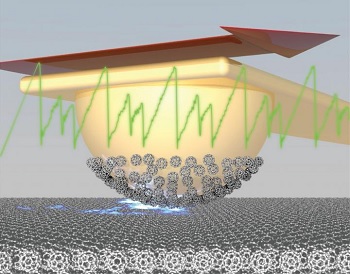Oct 7 2014
A collaborative group of researchers are endeavouring to develop nano-sized ball bearings for efficient transportation in the nano world. These bearings could be used for transportation of medicines within the human body.
 Image Credit: SISSA
Image Credit: SISSA
The researchers used C60 Hollow Fullerene spheres which have a diameter of 1nm. At a temperature of 260K, molecules in C60 achieved free rotating ability and researchers hoped that this may have a role in friction. Two experiments have been performed on this property, but they have provided dissimilar results.
In both experiments, at temperatures of more than 260K, the researchers slid the hollow carbon nanosphere material over a substrate material. In one case, a 100% decrease in friction was observed, while in the other experiment, no significant reduction in friction was noticed.
In order to verify the results of the experiments, the researchers simulated an electron microscope with its tip having a C60 flake. They dragged this tip over a fullerene material surface. When the flake was fixed in a manner that it could not rotate, no decrease in friction was observed. This occurred even when the material temperature was increased to more than 260K; no nano-bearing effect was observed.
However, a large reduction in friction was observed when the flake was allowed to rotate freely. This enabled smooth sliding of the flake over the surface. In this case, the variation in contact geometry led to reduction in friction.
The data from the two experiments provided empirical observations, and as the phenomena of nanobearing function had not been confirmed, the potential usage of fullerites for nanoscale reduction of friction is at question. The researchers have published their study in the scientific journal Nanoscale.